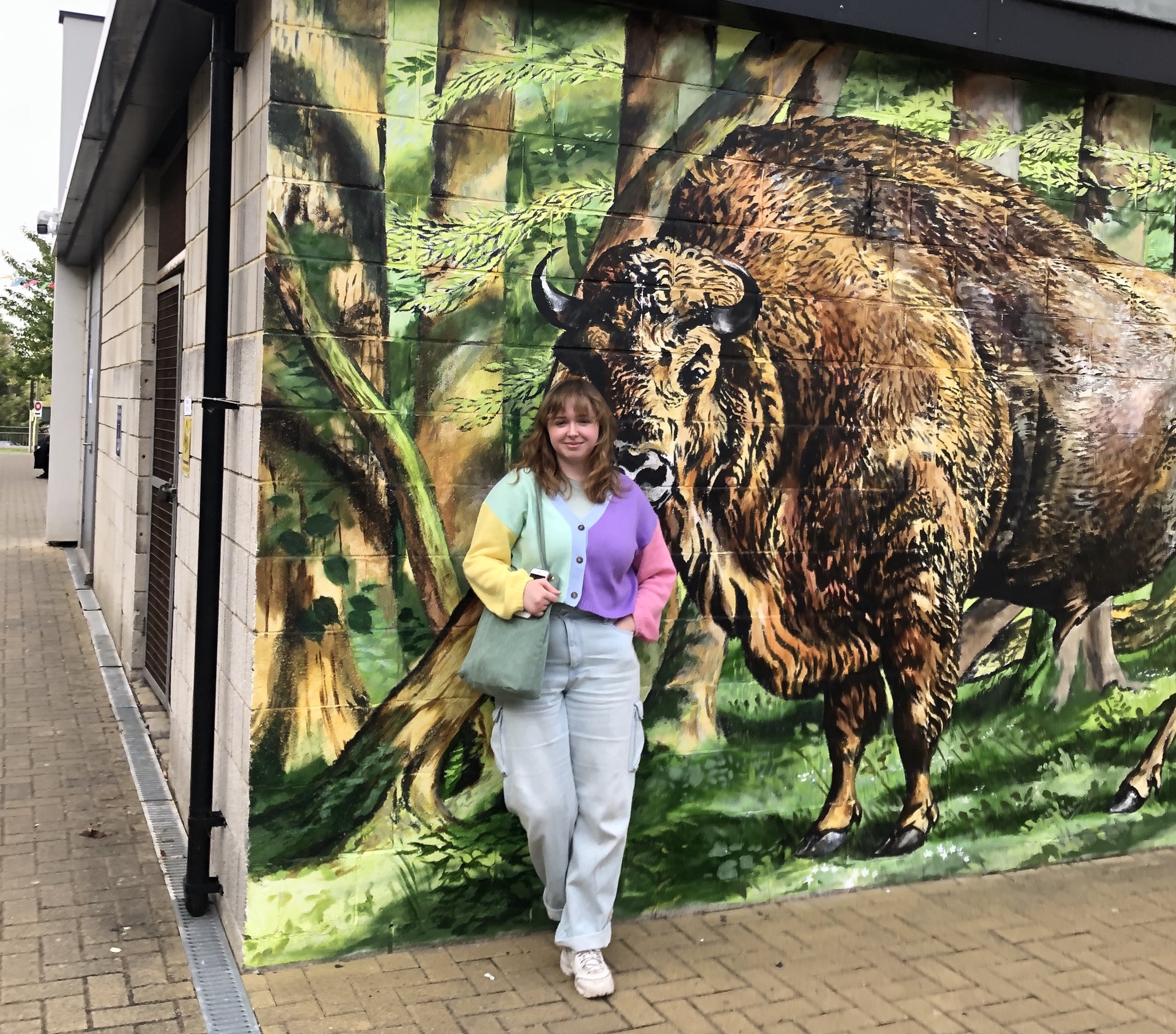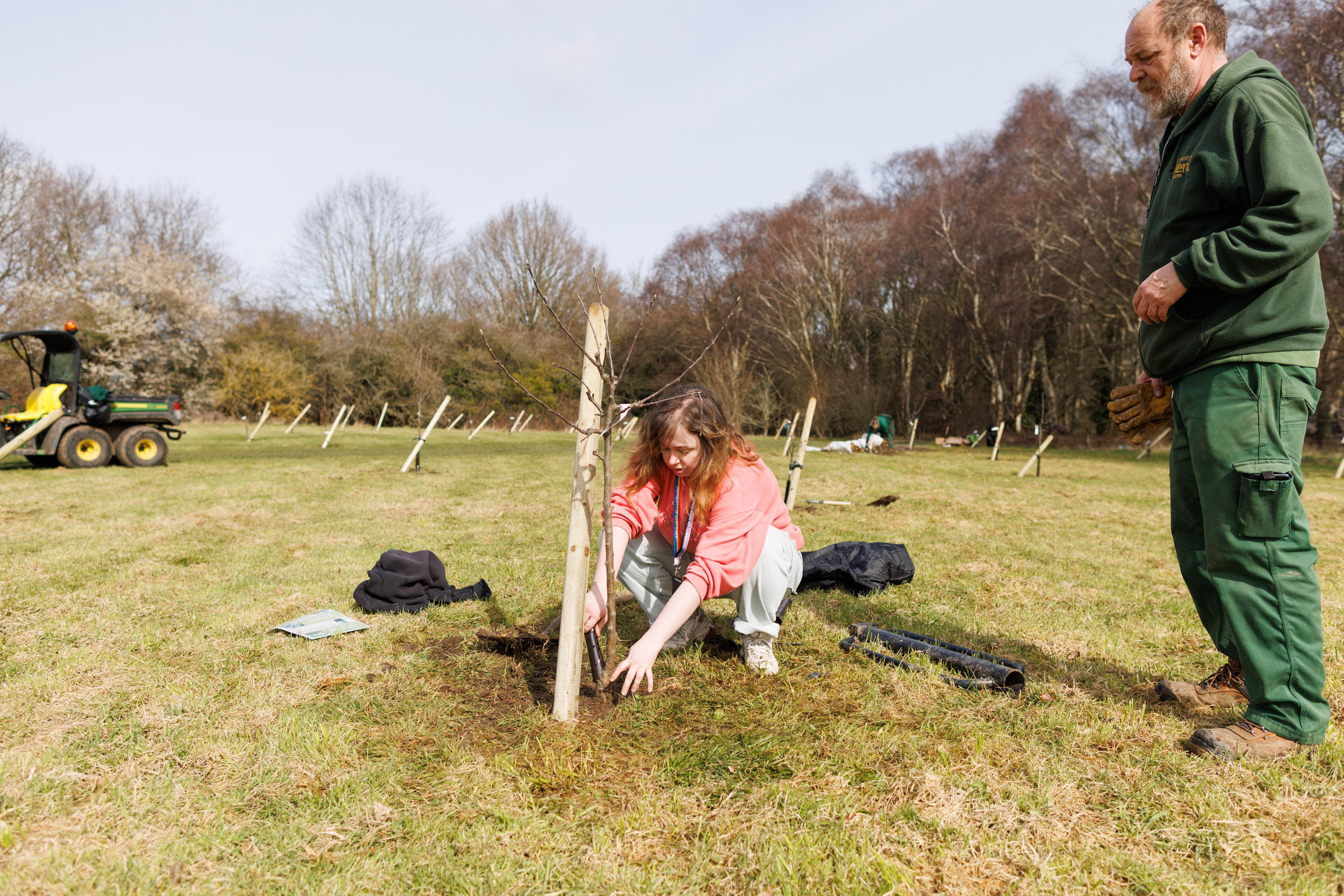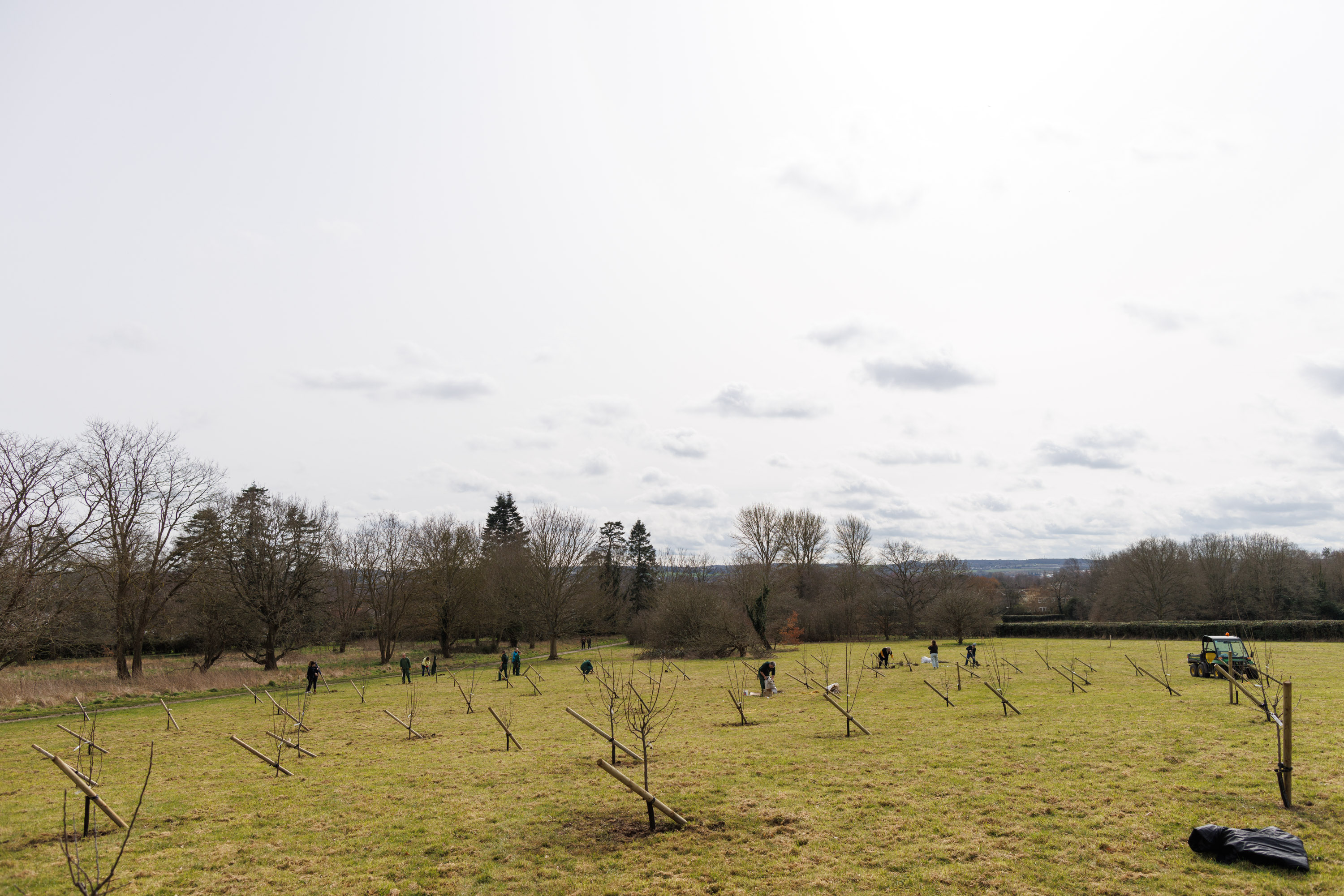Between the second and final years of a ‘Year in Practise’ degree, you spend up to a year undertaking a work placement with an organisation relevant to your degree. Placements can be at home or abroad and give you the opportunity to apply your academic skills in a practical context. Environment and Sustainability student Jess Collins describes her experiences within the University’s sustainability team here on campus.
Why did you choose to study a year in (industry, abroad, another subject)?
I chose to study a year in industry because I wanted to do stand out as more employable in the field that I’m interested in, and wanted a taste of working in that field to help me make decisions about my career after university. Although university offers amazing academic opportunities, I thought that it would be useful to gain practical experience, with advice and coaching from professionals, and chances to network.
‘I also have just loved university and wanted to spend longer here as a student!
How did you choose what to do? (industry, abroad, another subject)
I decided quite late on in my second year that I wanted to do a year in industry, and I struggled finding a placement as many deadlines for applications had already passed. I continued to search and eventually, fortuitously, came across an offer from the University of Kent’s own Sustainability Team offering a work placement aimed at students enrolled in the Environmental Social Sciences year in industry degree programme. The job sounded really interesting and like it would provide me with valuable experiences, the team seemed lovely, and the location was convenient too, being situated on the Canterbury campus.
‘If you know you want to take a year in industry then make sure you’re proactive, to give yourself the best possible chance.
What did you do during your year in (industry, abroad, another subject)?
My role was ‘Sustainability Projects Officer’ within the University of Kent’s sustainability team, helping them to deliver the university’s sustainability commitments under the Sustainable Development Goals Education Accord. I assisted the team with sustainability events on campus, supported them in their ongoing projects and initiatives, and even took on some of my own, which was very rewarding. I also helped to enhance student and staff engagement by creating content for the sustainability team and community garden social media pages and producing monthly newsletters for ‘Sustainability Champions’ keeping them up to date with sustainability progress on campus.
What was your favourite memory?
Getting to spend time in nature out and about on campus! Especially helping to plant the University’s Diamond Anniversary Orchard on the southern slopes of campus- we planted 300 fruit trees, and I interviewed volunteers to make a short film about the planting. It was really lovely to be a part of something so special, and I can’t wait to watch the trees grow! Other favourites include conducting quadrat surveys to measure the impact of ‘No Mow May’ on campus, and any time I got to spend at the Kent Community Oasis garden- helping out, chatting to volunteers, taking photos.
What about academic or study support?
I found that the academic support was really solid during my placement year. The HSS placements team regularly checked in with us all during the year to see how we were doing and offer support or advice should we need it, and I continued to receive the same support from the University and Student Finance for my mental and physical health as I normally would during my studies. I didn’t feel forgotten or left to fend for myself in any way, which was really important for me.
What skills have you developed for the workplace?
I’ve gained and developed a range of skills during my placement. I’ve learnt how to communicate effectively with my colleagues and work collaboratively within a team, but also how to better self-manage my time and workload and become comfortable working to a schedule to deliver projects. I have also had practice collecting and analysing data and writing reports, gained confidence speaking and presenting to an audience, and improved my administrative skills.
How has your degree helped your career prospects?
I feel that my degree and my work placement have massively helped my career prospects through offering me both knowledge and practical expertise relevant to the field I want to work in. Environmental Social Science largely focuses on topics from the disciplines of Human Geography, and Wildlife Conservation, so I have developed a broad understanding of how humans interact with our environment and how we may mitigate the damage we cause. I hope that my successful work placement in the Sustainability field will show that I am not just knowledgeable about this, but able to put plans into action.
What do you want to do in the future?
I know that I want to work in the environmental sector. I am passionate about and so many career paths that sound interesting to me – working for local government on environmental initiatives, working for a conservation or environment related non-profit or NGO, or working in sustainability consultancy.
‘Whatever I do, I want to feel like I am making a positive difference in some way.
What advice would you give to a prospective student considering taking a year in (industry, abroad, another subject)?
First of all, make sure you start searching early! I was very fortunate to find a placement so late on, but lots of people don’t manage to find one, so if you know you want to take a year in industry then make sure you’re proactive, to give yourself the best possible chance. Secondly, make the most of the support offered to you, by the university and by your workplace. Doing a degree, where you can study and complete assignments on your own time and schedule, is so different to working in a professional environment as part of a larger team, and it can take some time to adjust.
Jess Collins is studying for a BA (Hons) in Environment and Sustainability (Year in Professional Practice).




